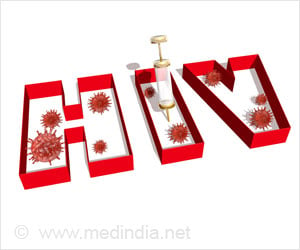The efficacy of the HIV vaccine can be improved by changing its route of administration and the interval between doses, suggested a new study.
- HIV is currently managed with a combination of anti-HIV medications
- The medications are sometimes beyond the reach of those who need them
- A vaccine could be a boon to several individuals exposed to this deadly viral infection
A new strategy of delivering the HIV vaccine could probably pave the way to the availability of a vaccine for the chronic immune disease. A study indicating the same was published in the Immunity. Human immunodeficiency virus, the virus that causes AIDS, reduces the immunity to such an extent that the person becomes prone to various infections and cancers that are not as common in people with normal immunity. Two approaches were adopted to deal with the increasing number of HIV incidences. One approach was aimed at developing drugs that maintain the immunity levels in the individual after the patient was exposed to the virus. The second approach was to prevent the infection, through education, and the development of a vaccine. While the development of drugs has taken giant leaps and drug combinations have been able to prolong lives, the development of a vaccine has faced several hurdles, and has yet to see the light of day.
A research team from the Scripps Research Institute (TSRI) and the La Jolla Institute for Allergy and Immunology (LJI) claim that they might have found an answer to this problem of generating and maintaining neutralizing antibodies by altering the way the vaccine is administered.
The team conducted their studies in rhesus macaques. The macaques are considered a good model since their immune systems appear to be very similar to those of humans. The team tested various vaccines as well as different strategies of administration. They found that, by changing the strategies used to administer the vaccine, a good immune response could be achieved. These methods included:
- Administering the vaccine subcutaneously, that is, just below the skin instead of the usual intramuscular route.
- Increasing the time intervals between the first and second vaccination dosage from the usual 4 to 6 weeks to 8 weeks.
- Administering the vaccine slowly and continuously over 2 weeks through osmotic pumps. However, this may not be a practical option.
The research team also feel that the use of a stronger adjuvant and bilateral immunizations in the study could have also contributed to the better effectiveness of the vaccine.
Thus, by altering the way in which the vaccine is administered, one might arrive at a much better response. The use of such strategies might help to create a vaccine that could save millions, exposed to the deadly HIV virus in the near future.
- Pauthner M et al. "Elicitation of robust Tier 2 neutralizing antibody responses in non-human primates by HIV envelope trimer immunization using optimized approaches." Immunity (2017). Doi: 10.1016/j.immuni.2017.05.007.















